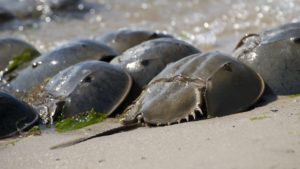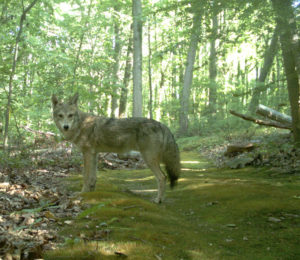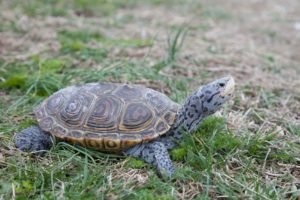Terrapin Watch
About Terrapin Watch
Terrapin Watch is a community science project that engages Long Islanders in an effort to monitor and record the distribution of diamondback terrapins in our region. Participants are simply asked to report any diamondback terrapin sightings through our data collection system. Reports can be submitted through the data form below or on a mobile device through the free Survey 1-2-3 app.
Please contact Arielle Santos at [email protected] or 631-581-6908 with any questions regarding the survey.
Accessing the Survey 1-2-3 Mobile Field App

- First, you must download the free Survey 123 mobile app on your mobile device
- Scan the QR code on the left using your phone’s camera. If you are currently on your mobile device, click here to download the Terrapin Watch survey and proceed with steps 4 & 5
- After scanning the QR code, click the top banner notification to open ArcGIS
- Choose “Open in the Survey 123 field app”, and “Open this page in Survey 123”
- Choose “Continue without signing in”
Terrapin Watch Survey Map
Please Note: Clickable data points (shown in red) do not reflect confirmed sightings of wildlife. Each red dot indicates a survey submission.
Related Information

Horseshoe Crabs
The horseshoe crab (Limulus Polyphemus) has been around practically unchanged for over 450 million years, categorizing it as a “living fossil”. These fascinating creatures aren’t actually crabs at all, as they don’t fall under the subphylum “crustacea,” which includes blue crab, spider crabs and other true crabs.

Coyotes
Coyotes Coyotes on Long Island: Background The following videos, from presentations made by Gotham Coyote founders Mark Weckel and Chris Nagy at the 2015 Long Island Natural History Conference, (while already slightly outdated) provide excellent background about how coyotes arrived in our

Diamondback Terrapins
Diamondback Terrapins About Diamondback Terrapins One of Long Island’s more iconic coastal species is the Diamondback Terrapin (Malaclemys terrapin), the only turtle in the world that inhabits brackish water habitats such as salt marshes, tidal creeks, and shallow bays and
